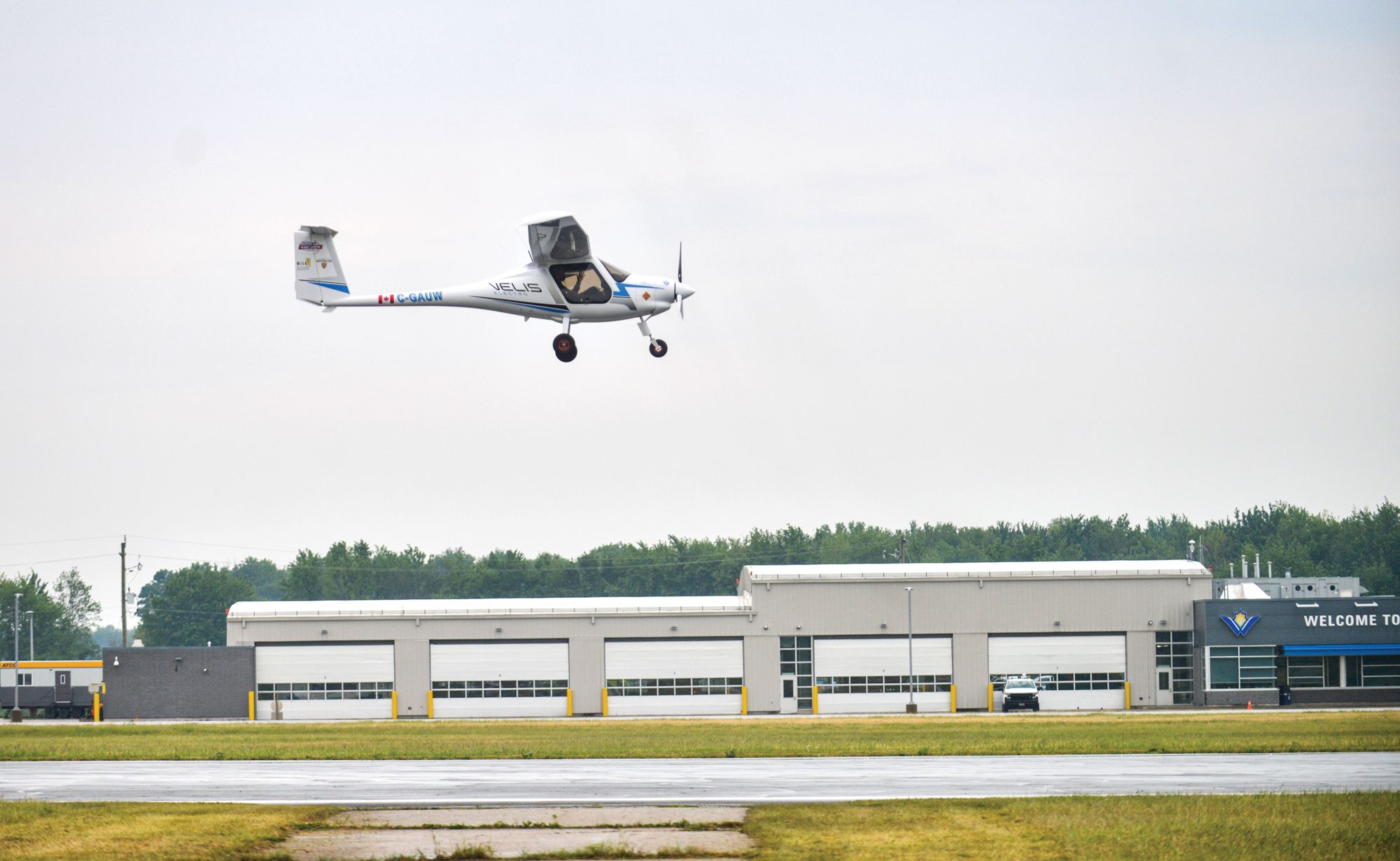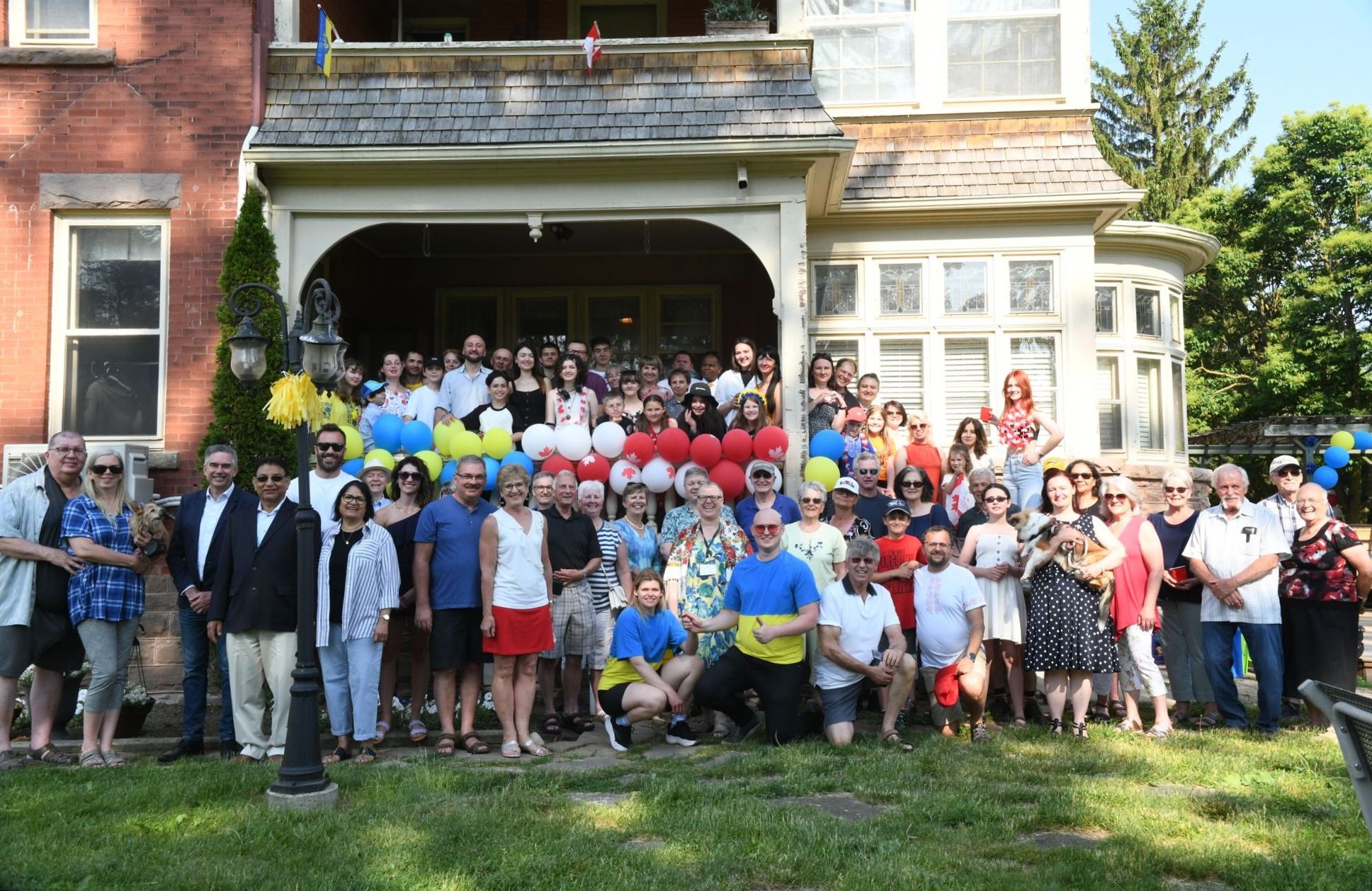The aviation industry took a small step towards becoming more environmentally friendly last week in Breslau with the successful first flight of the only electric training aircraft in Canada.
As part of a joint venture between the Waterloo Wellington Flight Centre (WWFC) and Waterloo Institute for Sustainable Aeronautics (WISA) at the University of Waterloo, the two-seat Slovenian-built Pipistrel Velis Electro was purchased last fall for $30,000. It can carry two people and can reach speeds of up to 180 km/h. Its battery capacity allows for a maximum flight duration of 50 minutes.
Matthew Scheben, the chief flight instructor at WWFC, was the pilot at the controls for the flight. The plane is “super smooth,” he said.
“It’s a nice feeling knowing you’re not kicking out all these CO2 emissions. And it has really instantaneous power when you go. It’s beautifully modelled – it flies like a dream. It’s nice and light on the controls, there’s no heavy pushing or pulling on the controls. And it’s very much automated,” Scheben said.
The two-battery plane is different than the fuel powered planes he’s used to.
“When you’re taking off in a gas plane, you can have it full gamut all the way up. This, you want to try to relax the power a little bit so that you’re not burning all your electricity all in one shot. So power management is a big concept with this type of plane.”
The flight centre is now focusing on how the Electro can be integrated into its training syllabus, Scheben said, adding the time for electric passenger planes is not far off.
“They are being operated in Europe and in training schools, so there are places in the world that are using electric planes now, but this is the first one in Canada to arrive. We’re seeing how we can maybe adapt that.”
Sheben’s co-pilot Paul Parker, associate director for environment at WISA, agreed and pointed to major industry players such as Airbus that are already making the move to electric.
“This is on the small scale. This is straightforward, but we also have ambitious movements on the bigger scale,” he said.
The batteries, which can either run simultaneously or on their own, are the biggest obstacle in terms of endurance for the plane, Parker said.
“We’re looking forward to new battery technologies, because investment going into automotive batteries is going to help,” he said.
Kitchener-Conestoga MP Tim Louis, who was on hand to view the flight, said the younger generation just getting into the industry was a driving force to making the flight happen.
“The generation that wants to get into flight and is concerned about the environment. We only have to look into the skies these days to see that we need to do more, and to be part of the solution is fantastic,” he said.









